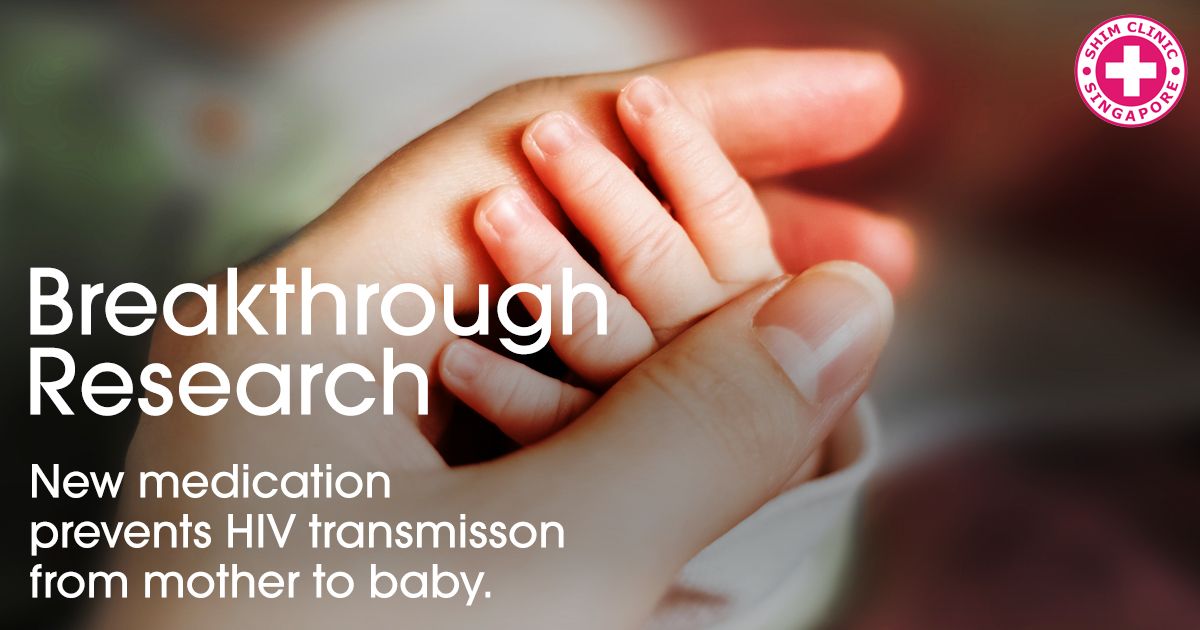Preventing the spread of the human immunodeficiency virus is considered one of the primary ways for controlling and even eliminating the HIV/AIDS epidemic. Luckily, medical research is well underway and several new developments have proven to be quite effective.
A new breakthrough study is adding to the pharmaceutical arsenal of healthcare professionals. It focuses on a new antibody-based treatment that could potentially be used to prevent the spread of HIV from mother to new born.
Promising Findings, Hope for Babies of HIV-Positive Moms
Results of the non-human clinical trial were presented in the beginning of 2020 in the Nature Communications journal.
Researchers worked with macaque monkeys to see whether the administration of the antibody-based treatment was effective. They discovered that a single dose of the therapy prevented the development of the simian immunodeficiency virus (SIV) – the one that crossed over from apes to humans and transformed into HIV.
The clinical study, however, made one other very important finding.
Delaying the treatment to 48 hours or more after the exposure to the virus resulted in 50 per cent effectiveness. Half of the baby macaques treated did go ahead to have a SIV-positive status, regardless of the treatment administration.
Based on this information, researchers concluded that timing is of the essence for the effective prevention of the HIV transmission from mother to new born. In this sense, the antibody-based treatment study shows results quite similar to those obtained through HIV post-exposure prophylaxis or HIV PEP. HIV PEP is recommended for high risk individuals who may have engaged in unprotected sexual contact. When administered in the first 72 hours after the contact, HIV PEP is up to 90 per cent effective.
The Importance of the New HIV Study
There are several reasons why the new HIV study is so important, regardless of the fact that human trials aren’t taking place yet.
According to the researchers from Oregon Health and Science University School of Medicine, this is the first time that a single dose of antibodies given after viral exposure has been capable of preventing the spread of SIV in apes.
In previous related research, clinicians used four doses of antibodies in the first 24 hours after the exposure. The treatment was proven to be 100 per cent effective but a larger amount of medication was required and there was also a relatively short time period for administration.
Through the development of the new drug, healthcare professionals will also find it much easier to take care of babies born to HIV-positive mothers.
The babies born to HIV-positive mothers have to take a cocktail of antiretroviral medications for up to six weeks. This regimen is daily and upon the completion of the personalised program, the baby will have to be retested. Imagine how much simpler life would be if a single dose of a medication could prevent the HIV infection in a new born.
With current medical therapies, it’s still possible for babies to become HIV-positive and to necessitate medication for the rest of their life. Hence, the development of a potent antiretroviral therapy is absolutely essential to give these little ones a fair chance.
How Common Is Mother to Baby HIV Transmission?
HIV-positive women who get pregnant need to be on antiretroviral therapy over the course of their entire pregnancy. Such a move is needed to keep them healthy and to also prevent the spread of the virus from mother to child.
While such therapies are generally effective, there are still some instances in which the virus can be transmitted.
According to the World Health Organization (WHO), the use of antiretroviral medications over the course of a woman’s pregnancy makes the risk of viral transmission approximately five per cent. In the absence of treatment, however, transmission rates range from anywhere between 15 and 45 per cent.
The latest WHO statistics show that 170,000 new infections among new borns take place on an annual basis across the world. Luckily, this number has been brought down 48 per cent over the course of six years. Eight out of 10 pregnant women living with HIV receive antiretroviral medications and the mother to child transmission rate (including birth and breastfeeding) has been set at an average of 14 per cent.
Protecting Yourself and Your (Future) Child
There are many things you can do to reduce the risk of a HIV infection that could potentially ruin your life and the life of a loved one.
Regular HIV testing is the first and biggest essential for all sexually-active individuals. Even if you don’t engage in risky sexual behaviour, going for a regular screening can help you rest assured that both you and your partner are healthy.
High risk potential mothers or pregnant women can benefit from a therapeutic choice like HIV pre-exposure prophylaxis (HIV PrEP) and HIV PEP. In fact, the World Health Organization currently recommends PrEP as one of the best opportunities for preventing the spread of HIV among new-borns.
You can benefit from easily accessible HIV screening and prophylactic opportunities in Singapore.
Shim Clinic is one of the facilities that offer HIV testing, HIV PEP and HIV PrEP administration. We are also the place you may want to visit in order to have your sexual health questions answered. The team is available to consult you and recommend the lifestyle/medical changes that will make the most sense.
Contact us today to find out more or visit Shim Clinic during our work hours every day of the week.

